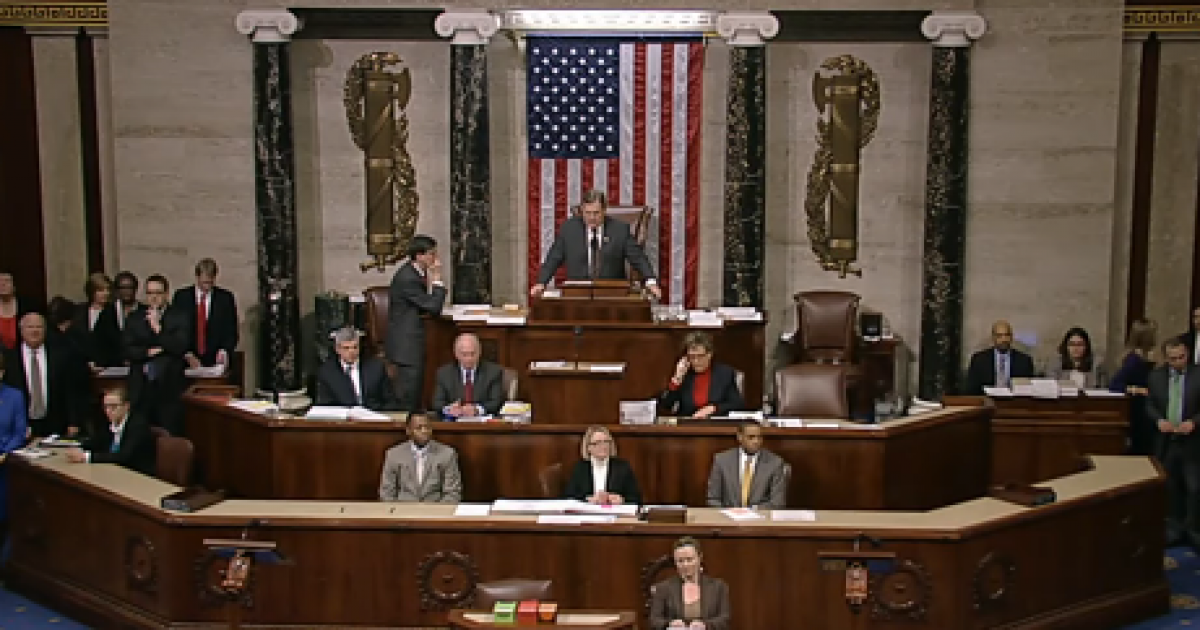
Republican leaders are becoming more worried about the country’s fiscal situation as the government has had to embark on massive spending to combat the Wuhan virus outbreak.
In the last few weeks, Congress has passed a number of relief bills that total roughly $2.8 trillion.
The Hill notes that this is “roughly the combined total of the fiscal 2019 and 2020 discretionary spending for the entire government.”
Over 20 million Americans have filed unemployment claims, the stock market is in a state of flux, and the Wuhan virus is getting close to a million cases in America.
Democrats, and a few Republicans, are now focusing their efforts to pass a phase four Wuhan virus bill, which some experts believe will need to match or exceed last month’s gargantuan $2.2 trillion stimulus bill.
However, certain leaders such as Senate Majority Leader Mitch McConnell are becoming skeptical of raising spending.
“Let’s weigh this very carefully because the future of our country in terms of the amount of debt that we’re adding up is a matter of genuine concern,” McConnell told reporters earlier last week after the Senate greenlit its latest $484 billion relief bill.
McConnell stated on April 22, 2020 that Congress would “pause” and “assess the future potential damage” caused by the recent rise in the country’s debt.
Florida Senator Rick Scott rolled out a “Let’s Get Back to Work” plan that includes a plan to tackle annual deficits.
“Even prior to Coronavirus, our nation was running trillion-dollar yearly deficits. In order for America to be prepared for the next challenge, and ensure a prosperous economy for generations to come, Congress and the Administration must work together to bring spending under control,” Scott asserted.
McConnell did concede that the extreme circumstances the U.S. currently finds itself in do necessitate a strong response from the government.
“We occasionally have these great crises, and when they occur, we’re able to rise above our normal partisanship — and many times our normal positions — because these are not ordinary times,” McConnell said to reporters last month.
Nebraska Senator Ben Sasse declared that his colleagues were “shoveling money out of a helicopter” without trying to make efforts to determine if it’s being spent responsibly.
“Right now, the plan around here is basically just to start shoveling money out of a helicopter, and the most important debate is whether Democrats or Republicans get to shovel the money first,” commented Sasse.
Kentucky Senator Rand Paul, who was quarantined while Congress rubber stamped the $2.2 trillion stimulus, returned to Washington last week to warn about the dangers of D.C’s spending binges.
“No amount of money, not all the money in China will save us from ourselves. Our only hope of rescuing this great country is to reopen the economy,” declared Paul, who voted against the latest relief package.
“My advice to the Senate and to the American people is let’s be aware of what we’re doing by creating all this new debt, and let’s think before we jump to a terrible, terrible conclusion,” he continued.
The federal deficit for the fiscal year of 2020 rose to $743.6 billion in March. This represented a 7.6 percent higher increase from the same point back in 2019, per Treasury Department data. These figures do not include the $2.2 trillion stimulus bill that Congress approved.
According to a report from the Committee for a Responsible Federal Budget, the country’s debt is expected to surpass the entire size of the American economy by the end of 2020. The last time the U.S. found itself in a similar scenario was back in World War II.
In a recent letter, Arizona Congressman Andy Biggs urged leadership to exercise fiscal restraint. He was of the view that giving more funding to state and local governments would establish bad precedents and negatively affect the country’s debt. The National Governors Association recently requested that Congress give it an additional $500 billion.
“Our structural deficit this year will exceed $4 trillion. By the end of the fiscal year our debt will exceed the size of our economy. We are on an unsustainable path. We cannot afford to backfill the poor decisions of state and local officials. It is time to reopen America and it must begin with state and local leaders,” Biggs wrote.
Once this virus saga is over, Congress will need to get serious about tackling the national debt.
Future generations should not pay the price for their predecessors’ fiscal misbehavior.



